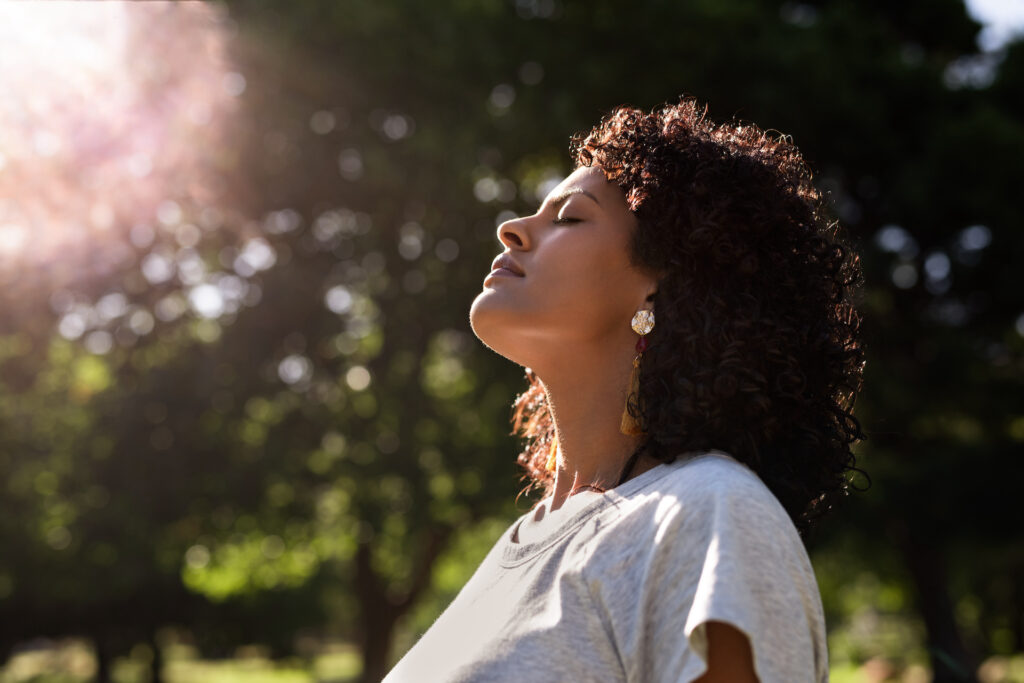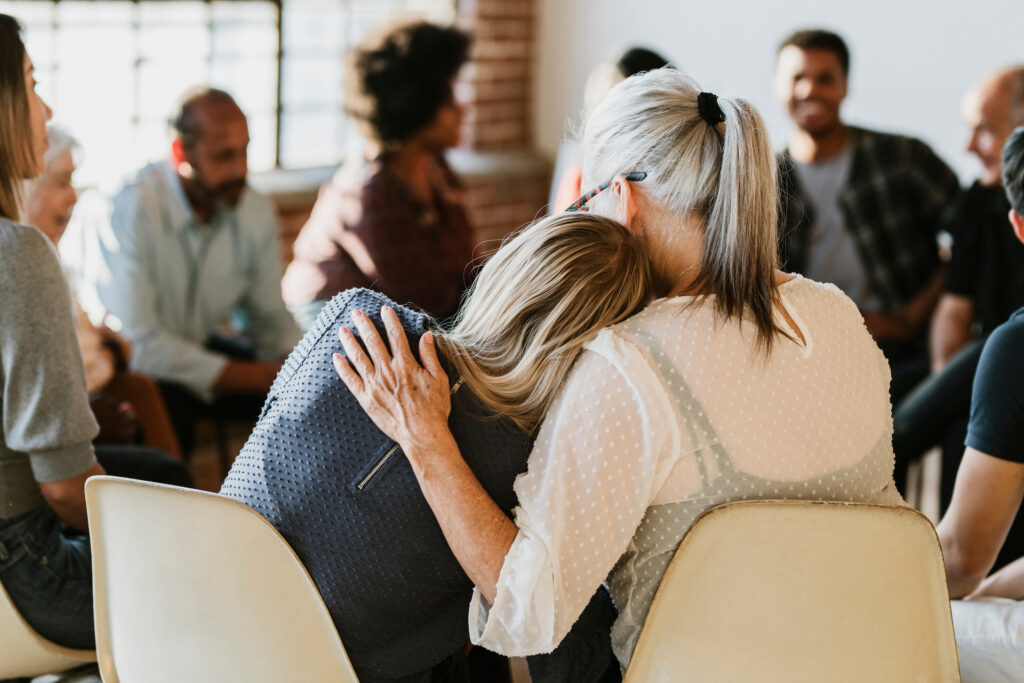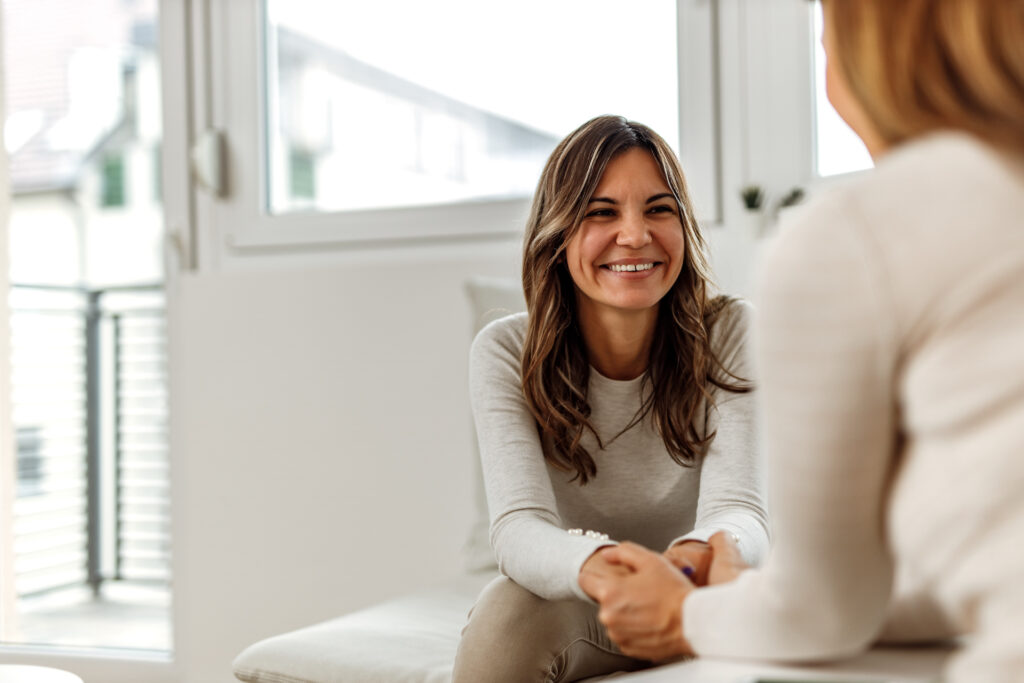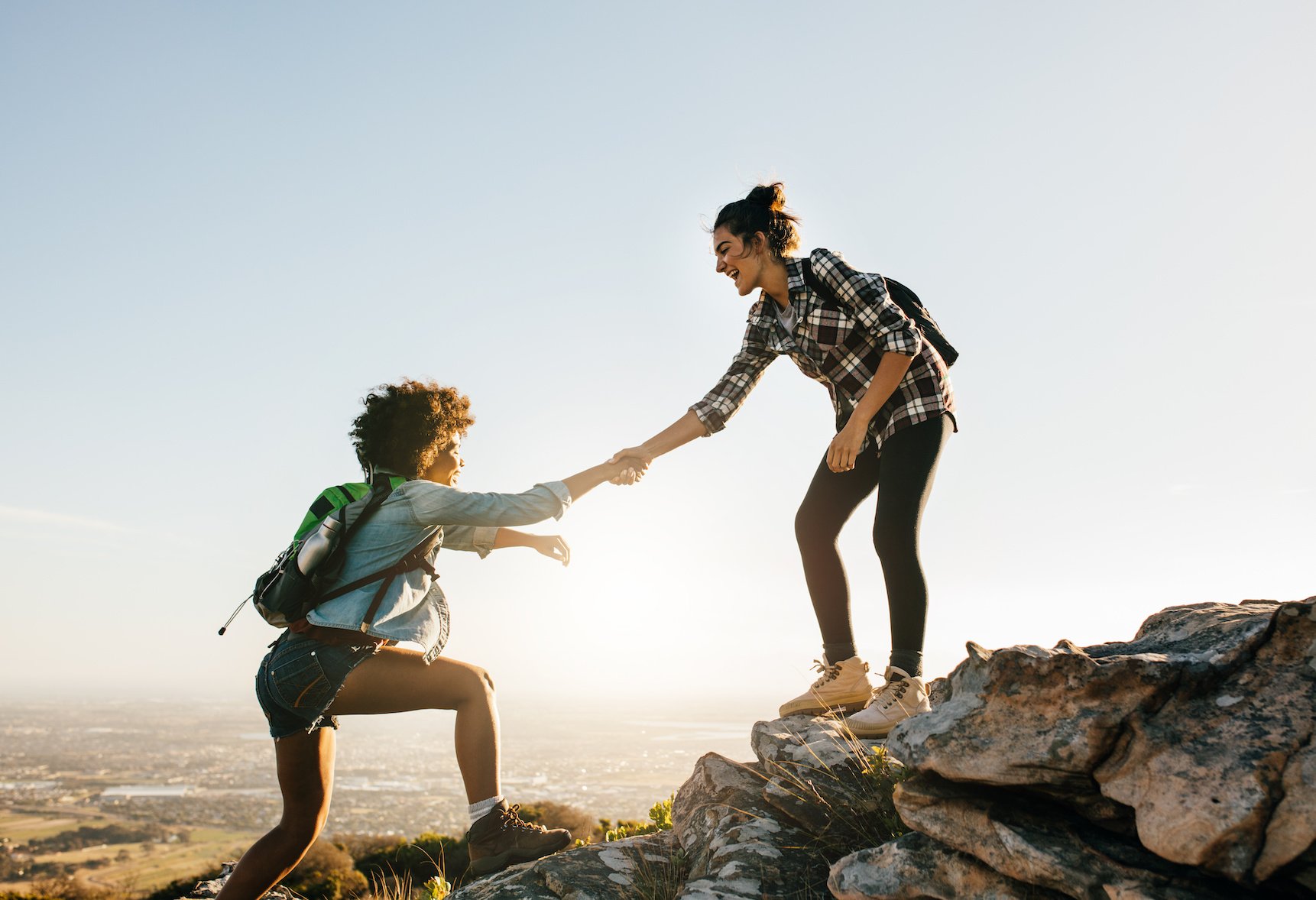One question we commonly ask families and partners impacted by addiction as well as clients who have been in recovery is, “If you had the chance to change your life all over again, would you still have been impacted by addiction?”
The overwhelming answer is yes. In fact, alumni say, “The addiction brought me back to who I really am and through the chaos/hell/drama I found myself.”
Often, alumni will say that they would shorten the amount of time in active addiction, but not the fact that they had an addiction. Likewise, attendees of our Family Program will share that the addiction of their loved ones had a type of transformative impact on their lives.
This blog will focus on 5 ways to make sense of the adversity and challenges we face in our lives. While our struggles offer opportunities to grow at a deeper emotional level, what really is the purpose of life? Do we exist to grow and learn? We will explore some of these questions as we try to “make sense of it all.”
1. Embrace Adversity and Grow Along the Way
There are as many nights as days, and the one is just as long as the other in the year’s course. Even a happy life cannot be without a measure of darkness, and the word ‘happy’ would lose its meaning if it were not balanced by sadness.
– Carl Jung
So many people say “I wish I knew then what I know now” as they progress through life. It’s even a song. But we can only gain this knowledge by learning experiences in life. This learning is not always fun or accomplished through spontaneous adventure. Often, learning in life occurs through the dark moments of pain. We experience pain because we need to adjust our thoughts and grow.
When we try the same methods over and over again expecting different results, then it is time for us to change. Once we change our thoughts, attitudes, or actions we can then gain perspective. We begin to realize the door we wanted to walk through was right beside the wall we kept banging our head against.

Darkness, sadness, and despair are regular parts of being human in this world. As humans, we are hedonistic by nature. So a faster way of recovering from painful experiences is to not ask “why” or “how could this happen”, but to instead question what we can learn so that we can grow emotionally, develop resiliency, and move through painful experiences more quickly.
Another important part of happiness is appreciation. We may not really experience elation or moments of being happy if we had not endured the alternative moments of pain and misery. With pain, we can take on the responsibility of making sure we feel better, and by doing so we not only heal but also learn valuable lessons about life along the way.
2. Express Free Will and the Ability to Create our Own Reality
If we develop a persecution complex, we will be perpetual victims and martyrs. Instead, if we believe that other people come into our lives for a reason or a purpose, then we can explore the meaning of our relationships. Inevitably, people come into our lives and share with us some lesson or purpose. As a result of these relationships, we grow on deeper levels. Believing we are victims of other people’s actions affects how we perceive the world and create our own realities.
Now, some people assume that their immediate partners/spouse/relatives have to be loving individuals who are in tune with their emotions and strive daily to make them happy. Say closest friends and family members had their own rigid views on life and were not shy to express their criticisms. In such interactions, we could either feel perpetually wounded or we could take charge of our lives and grow emotionally.
For example, some may have constructive criticism that is valuable for us to learn. Some of the most challenging people become our greatest teachers. Others who are critical with constant opinions may need us to set boundaries with them. Either way, we interpret these situations according to our own free will as well as our views of reality.
With such power, we can’t blame other people for the condition of our lives. Instead, we need to take responsibility for our own actions, thoughts, and behaviours; resilience in the face of adversity. In many ways, it is easier to blame others for our own unhappiness rather than acknowledge ourselves as the culprit. But if we have free will as humans then it is our responsibility to take charge of our lives to create the reality we want for ourselves.
3. Become More Compassionate and Connect to the Larger World
“How far you go in life depends on you being tender with the young, compassionate with the aged, sympathetic with the striving, and tolerant of the weak and strong. Because someday you will have been all of these.”
– George Washington Carver
Many people believe that the deeper purpose of life is about becoming unconditionally loving as well as tolerant. We come to this world in relation to others and as humans, we shine best when we are giving and connecting to the larger community. There is nothing more disappointing than people collapsing into entitlement and self-absorption. Progress in life occurs when people rise above their own self-centeredness and connect back to the larger world through compassion.

Examples of unconditional love:
• Reserve judgment and criticism
• Use empathy and imagine “walking in another person’s shoes”
• Do not place conditions on people (unless boundaries are necessary)
• Try to live without expectations
• Live with the attitudes of appreciation and gratitude
When we experience heartache, broken trust, or even betrayal, unconditional love sometimes loses priority while we heal. However, we can speed up our healing by reaching out and connecting to something greater than ourselves. This can be either through spiritual expression, service work, or the unconditional love of others. When we rise above our wounded egos, we see that we have a much larger purpose to connect with because we are part of a larger humanity.
4. Lessons We Learn Along the Way
Life is a succession of lessons, which must be lived to be understood.
– Ralph Waldo Emerson
One mystery of life is what we are doing here on this planet. When we are children, we begin to form our values, opinions, and core beliefs for how the world should operate. As we form our personalities, we continue to gain life experience. Even as children we can use cruel words and struggle with others in the sandbox. In many ways, life is a series of lessons. In our careers, we may still feel like we are playing in a sandbox with our co-workers when we are flabbergasted at others’ immature and manipulative behaviours.
So, what does this mean if life is a series of successive lessons? What does this mean for our relationships impacted by addiction? Why do we suffer from the experience of witnessing our loved ones self-destruct with drugs and/or alcohol?
Some benefits of surviving the impact of addiction include learning:
- We are powerless over the actions of others
- We become clear about our priorities and what we want out of life
- We learn the necessity of self-care
- We learn that we must increase our value in relationships
- We discover if we’re being helpful or not
- We are not victims and we must teach other people how to treat us, which can best be done through boundaries
5. Cultivating Relationships with Others
Life is relationships; the rest is just details. Much of who we are as people stems from our relationships with our families, friends, co-workers etc. Even if we were to leave a large legacy of some kind, the measurement of the greatness of this legacy would be in relation to the impact of our actions on other people.
– Gary Smalley
Psychologist Richard Ryan and Research Collaborator Tim Kasser wrote a book called “The High Price of Materialism.” They concluded through their research that people who strive for intimacy, personal growth, and contribution to the community enjoy a higher quality of life.

Material wealth is not equated with happiness, yet so many people believe that if they had more money they would be content. Personal meaning and purpose in life lies in our relationships with others and our ability to learn and grow from the lessons along our journeys.
At Georgia Strait Women’s Clinic, our program is centred around discovering personal meaning. Our program, workshops, and sessions aim to give clients the tools necessary for successful long-term recovery. If you’re interested to learn more about our program and services, please visit our website or call us today.




